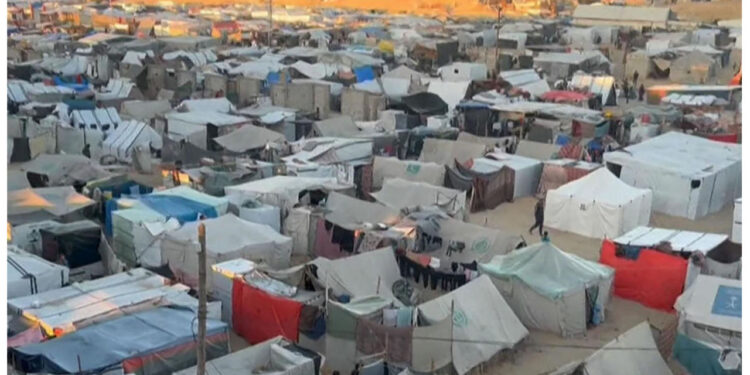The White House temporarily halted the delivery of weapons to Israel last week, according to a senior administration official. This decision was made as Israeli leaders were considering launching an operation in the southern Gaza city of Rafah.
During his testimony, Austin informed the senators that the administration has yet to make a definitive choice regarding the shipment’s fate. However, he highlighted the key factors that the administration is considering in relation to Rafah. Austin emphasized the potential for significant collateral damage caused by 2,000-pound bombs, emphasizing the importance of safeguarding the civilian population in the city.
Israel’s military declared on Tuesday the commencement of “targeted strikes” against Hamas in Rafah. The city has been identified as Hamas’ final stronghold. This military operation was authorized by Israel’s War Cabinet.
“Civilians in Gaza have lost their lives due to the use of bombs and other tactics targeting populated areas. I explicitly stated that if they enter Rafah – which they have not done yet – I will not provide the weapons that have historically been used in dealing with the situation in Rafah or other cities,” Mr. Biden emphasized.
According to Mr. Biden, the arsenal of weapons includes artillery shells.
The president assured that the United States will maintain its support for the Iron Dome, the system responsible for safeguarding Israel against rocket attacks. Additionally, he emphasized the readiness to respond to any recent attacks originating from the Middle East.
Mr. Biden stated that he did not believe the Israeli tanks taking control of the Gaza side of the Rafah border near Egypt was a sufficient reason to stop weapons shipments. According to him, this was because the Israeli military had not entered the population centers.
The closure of the Rafah crossing has resulted in the shutdown of one of Gaza’s crucial aid corridors.
According to a senior administration official, the United States has consistently advised Israel against initiating a large-scale ground operation in Rafah, given the significant number of people seeking refuge there after fleeing other areas of Gaza. However, the concerns raised by the United States regarding the humanitarian situation in Rafah and the approach towards Hamas have not been adequately addressed in discussions with Israel. As Israeli leaders neared a decision on Rafah, the Biden administration took measures to review the transfer of weapons that could potentially be utilized in Rafah, resulting in the temporary pause of one shipment last week.
According to a senior administration official, the shipment that was delayed last week consists of 1,800 2,000-pound bombs and 1,700 500-pound bombs. The Biden administration expressed particular concern about the potential for extensive damage in urban areas if the larger bombs were to be used. As of now, the U.S. has not made a decision on how to handle this specific shipment.
According to a senior administration official, the decision to temporarily halt the shipment is unrelated to the funding approved by Congress for Israel last month.
Israel has been issuing warnings about a possible ground assault on Rafah for quite some time. Recently, Israel officially launched the Rafah operation after expressing dissatisfaction with Hamas’ acceptance of a cease-fire proposal, citing that it does not meet Israel’s fundamental demands.
CIA Director Bill Burns is currently in Israel for talks with Prime Minister Benjamin Netanyahu as cease-fire negotiations continue in the Middle East.
The Biden administration’s growing concern over the harm caused to Palestinian civilians by Israel’s actions is evident in the United States’ decision to temporarily halt the shipment of weapons. A senior administration official has even provided insight into the reasoning behind this pause.










